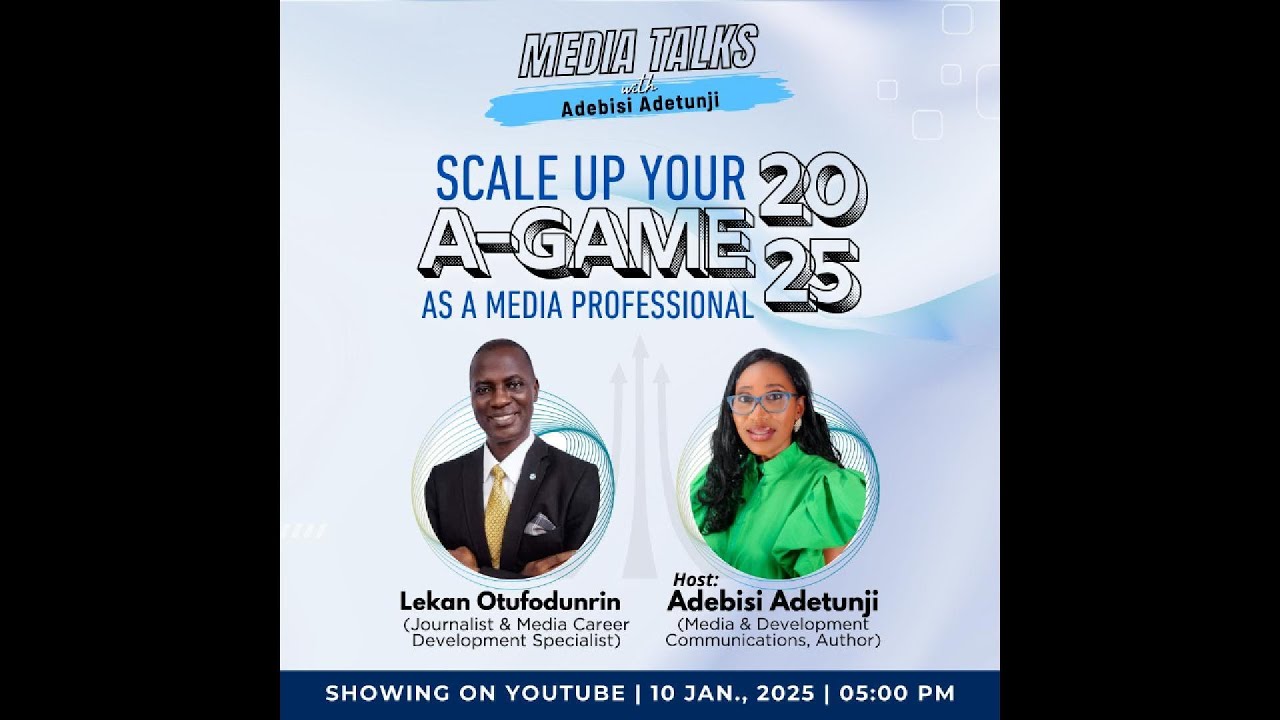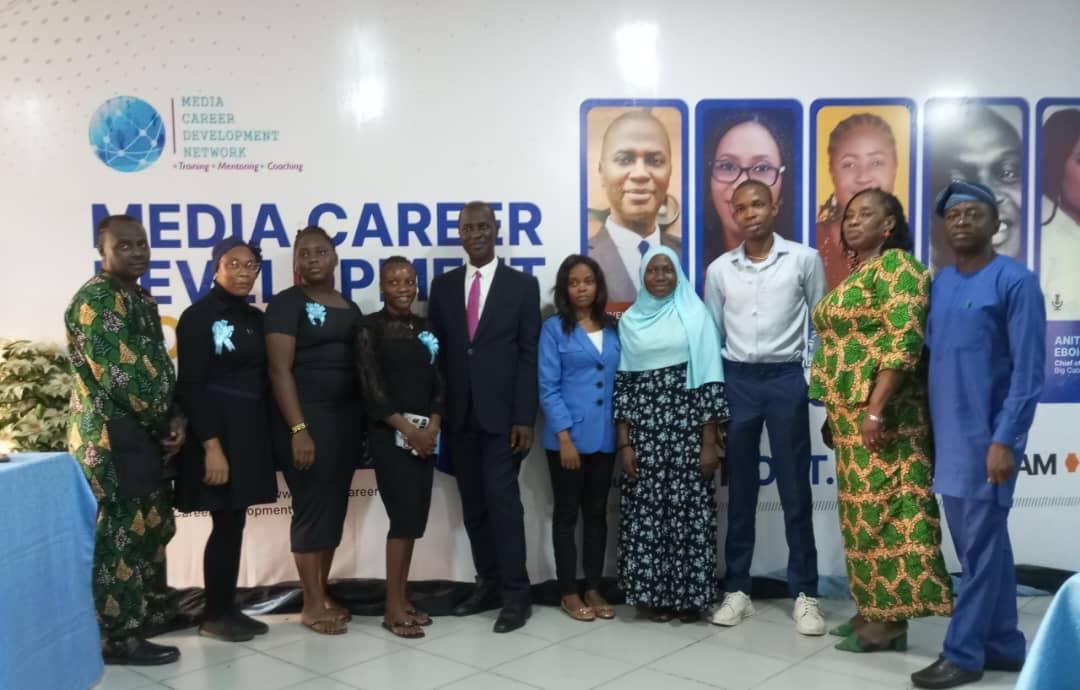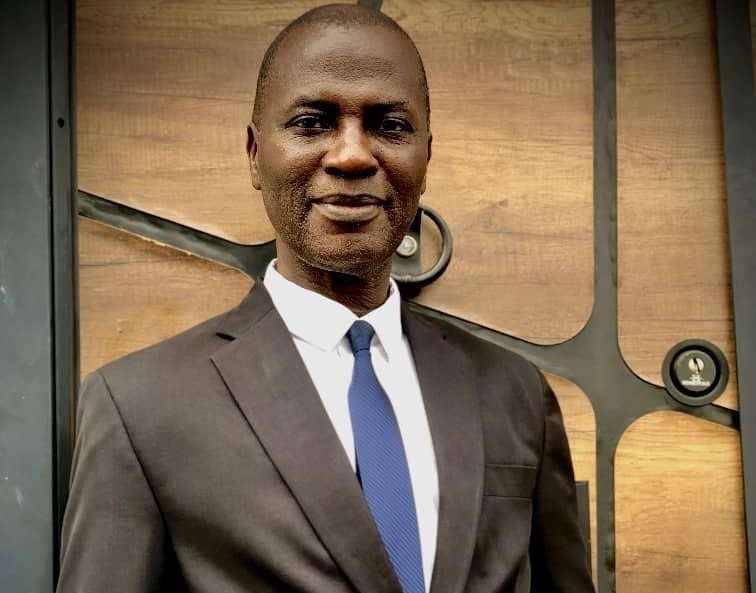The beginning of a new year is one of the best times for every professional, including media practitioners to review their career journeys and explore options to maximise available opportunities.
In this first interview of the year on her Media Talk Show, Media and Communication Specialist Adebisi Adetunji spoke with the Executive Director of Media Career Development Network, Mr Lekan Otufodunrin, on the topic “Scaling Up Your Career A-Game as a Media Professional.”
The interview turned out to be a two-in-one opportunity for listeners to learn from both Otufodunrin and the host who provided some additional insights and practical experiences.
Read below edited part of the interview transcribed by Muhammad Habibat Sani and Kzair Ibrahim.
Host: I had the time to read your book, The Journalist You Ought to Be, and I must tell you, it is loaded with nuggets, information, and experience-sharing. I got so much, and I thought it is something we should be sharing with media professionals like myself.
We’re talking about scaling up your career A-game as a media professional in the year. Now, what does that mean to you? What strikes your mind when we talk about bringing your A-game, even as you move into the new year as a media professional?
Otufodunrin: For me, scaling up your A-game means you’re moving towards the ultimate. You’re maximizing your opportunity.
It’s doing the best you can do—maximizing and ensuring that you utilize your skills to the best of your ability so that you are not disadvantaged in any way.
There’s no better time to think about it as we are starting the new year. It’s not just about a New Year resolution, it’s about your career resolution. It’s about ensuring that, like you said in the introduction: Am I doing the best? Am I where I should be? What else can I do beyond whatever I have accomplished so far?

I checked a bit of the dictionary meaning of “A-Game,” it talks about one’s highest level of play or performance. That is, according to the Merriam-Webster dictionary, it says your best performance—bringing your best performance. No matter where you are, you can do much more, whether you are in your early career as a media professional, journalist, reporter, producer, content creator, TV, radio, and all of that.
No matter where you are in your career, whether as an early practitioner, you are a beginner, you are in middle management, you are in management, you are a CEO of a TV or radio station, or you are a chief editor—what more can you do?
I read something in your book, The Journalist You Ought to Be, talking about the importance of us having a media career mission statement. What does that mean?
A mission statement is like a road-map. It is something that sets you on a particular lane so that you know at what point you are really where you’re supposed to be. Like I said in that book, if you don’t know where you’re going, everywhere you get to will seem like your ultimate. So as a journalist, if you become a news editor, it seems to you that this is the best that you can ever be. But whereas you know that you can still become an editor. You even can still go beyond that.
So the mission statement is a statement that defines what you want to accomplish, how you want to accomplish it, what you want to be known for, what gives you satisfaction—that yes, I am where I am supposed to be.
It’s important that we have a mission statement that we can constantly look back on and say, “Am I still on the way to where I’m going?” Because if you don’t have that, our job is so, so draining that you forget yourself so much that you don’t know when you are not paying attention to your career growth. I illustrated in my book that at a point in time, I was news editor at The Punch—even at that time, I had not traveled out of this country. People with lesser qualifications had traveled, and it took me a reawakening to say, “I need to do this.” It took me almost 20 years to go for my master’s degree. So, mission statement is very, very important. It’s never late to have it. Just to be able to keep checking, to be sure you’re on the way. You don’t live your life on chance and just think that everything will just work well. Things don’t work well—you have to work it.
When you talk about a mission statement as a media professional, what is your own mission statement. Can you share so that people can have something to refer to?
My mission statement, which I have redefined —because you need to be redefining some of these things because circumstances may warrant it at the point – is to provide support for every category of journalist. That’s the kind of thing. It doesn’t have to be as dramatic, but it’s something that just signposts the thing you want to be. That’s why I want to be a media mentor, a counselor—not just a trainer.
You can put it down and think about it, but it’s something that says, “I want to be the ultimate media mentor that meets the expectations of journalists,” because our goal in the media career is to provide that support that is missing. The truth is, in our industry, training, counseling, mentoring are not prioritized. It just happens. You’ll be lucky if you have those kinds of things put together. I want to be the person that provides that interface between the training they are getting and what they should do next. People go for training, they come back, and they don’t know what to do about it. They get confused in the newsroom, or they just move from one training to the other. they acquire all the certificates—just like many people share on on LinkedIn, saying “I’ve done this course and that,” so what’s next?
I think what you are doing is very important because that’s one of the reasons why I started this show: to provide more support for media professionals. Oftentimes, we just limit ourselves to, “Oh, I’m a reporter, I’m a producer, I’m a presenter, I’m an editor,” and then there’s just not that opening up of our mind to other possibilities of what the career—our career, the media profession—can do. There’s so much more we can do, and that’s what brings me to the question: How do we discover the extra value in a profession as a media professional so that we are not just in one place?
I sometimes count myself lucky that I woke up early to this discussion we’re talking about. It’s important to be exposed. You’re a reporter, you go out on topics. In my book, I wrote about learning from what you are covering—being inspired about what you are reporting. So, as you go out, you see things. For me, I was curious. That’s very important. You need to be very curious. You need to ask. How did I start calling myself a career development specialist? I met a young lady who studied education, and I asked her, “What do you do?” And she said, “I’m a job solution specialist,” and it got me thinking. That’s somebody that is defining that thing.
So, I’m a journalist, but what else do I like to do? I discovered that I like to mentor people. So, I became a media career development specialist. And I had to check the designation online to be sure what it is and who else is doing similar thing. I saw many people stating that they are media trainers, but not media career development specialists; it’s meeting a particular need. You need to have that hunger to say, “Look, what else can I do differently?” You need to audit your skills. So, I’m a reporter. I’m a writer and what else. I remember at a point in time, during the military era, The Punch where I was working was shut down, along with The Guardian and Concord for almost a whole year. Somebody was trying to help me get a job and he asked me that apart from reporting, what else can I do?” I was blank. It also got me thinking. But thankfully, these days, we are beginning to see that the skills of journalism are not just for writing alone. They are for many other things. I’m a journalist, but I’m teaching the skill. I can do consultancy work. Those are the things that you need to begin to see. You win an award repeatedly, you need to move from being just a multiple award winner to an expert in what your cover. Produce publications and other things.
So, it’s important—it’s about soul-searching that you need to do. And like I said, audit your skills. Find the one that is working. Find the one that you can amplify.
Take a leave when you are due for it, and that will really help.

Yes, very, very helpful. Very helpful. Talking about going on leave, taking a break is something that Nigerians have to take seriously. Even when you are on leave, people are still trying to look for work, somewhere to do, and that’s not helpful. As a creative, because as journalists and media professionals, you are a creative, ideas come during my leave period. Like when I first started writing and producing radio drama productions, it was during my leave that it just came to me. We’ve been doing this thing, and over the years, I’ve learned to sit with myself, like you said, you know, to look at, to take stock of my other skills.
What can I do? What do I like doing? I can write. I’m a creative writer. I can present, you know, conceptualize content because I am a broadcast person, so production is my call. I can conceptualize ideas and bring them up to content. I can edit. I do audio editing, and I’ve added video editing. So there’s a lot I realized I can do that I can put to work beyond gaining in a broadcast media organization.
How can we, beyond just covering events or talking about the issues necessary in our programming or articles, how can we be inspired by what we report? Just like you said in your book, how can we be inspired and learn to leverage what we are reporting to be better?
You must have a desire to be better than what you are. That desire spurs you to be thinking, “How can I learn from what I’m covering?”
And one of the other things I mentioned in the book is that journalists generally should be skeptical, not cynical.
There’s nothing wrong with being skeptical, but when you are cynical, you don’t see good even when it’s around you. And that is very, very important.
What I’ve cultivated is that I have an open mind; I’m willing to learn from my environment. If you have an open mind and if you have a desire to improve—even learn from people who are younger than you, learn from people who have ideas, and ask for help—those are the combination of things that you need to do.
When I became an Online Editor at The Nation, I didn’t know how to do a number of things. My daughter taught me how to edit photographs. So, it’s as simple as that.
You need that desire to improve—not just bemoaning your state. Not having that mindset that “Journalists don’t make it.” There is this saying that if you want to make money, don’t come to journalism.”
You can make money in journalism with the skills that you have if you broaden it the way we have talked about. It is not about having that default mindset of not being able to make it as a journalist that puts us in a position where we don’t aspire.
Thankfully, we are in a digital era where you can see best practices. I have seen people who came into this profession who are younger than us, and they have accomplished things better. And I learned from them.
We also must go beyond just a narrow definition of the media industry. Recently, Big Cabal Media is marking it’s 10th anniversary. They put out a video, and I have watched the video twice.
These are young, creative people who have come into the same media world where we say there is no money. But they are reporting technology widely instead of just what telecommunications companies are doing. They have brought a lot of innovation to covering the technology sector. They are producing lots of resources including data. They do a lot of analysis.
So, beyond news, there is a lot that we can do. We must be intentional about what we want to achieve. You must desire to expand your horizon. That is very, very important. Nobody is going to do it for you.

